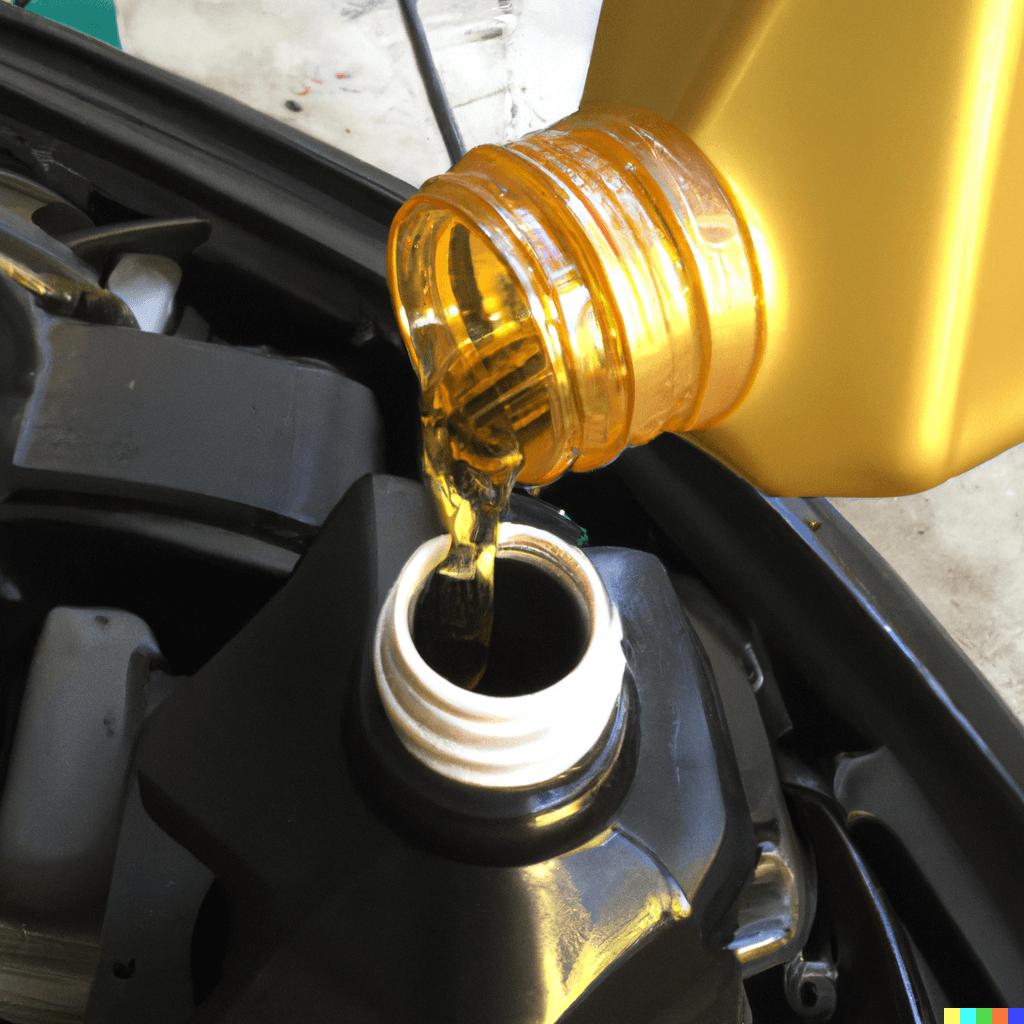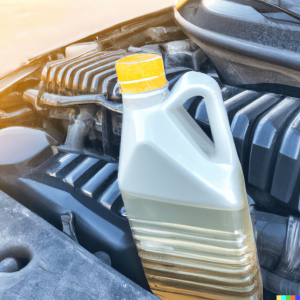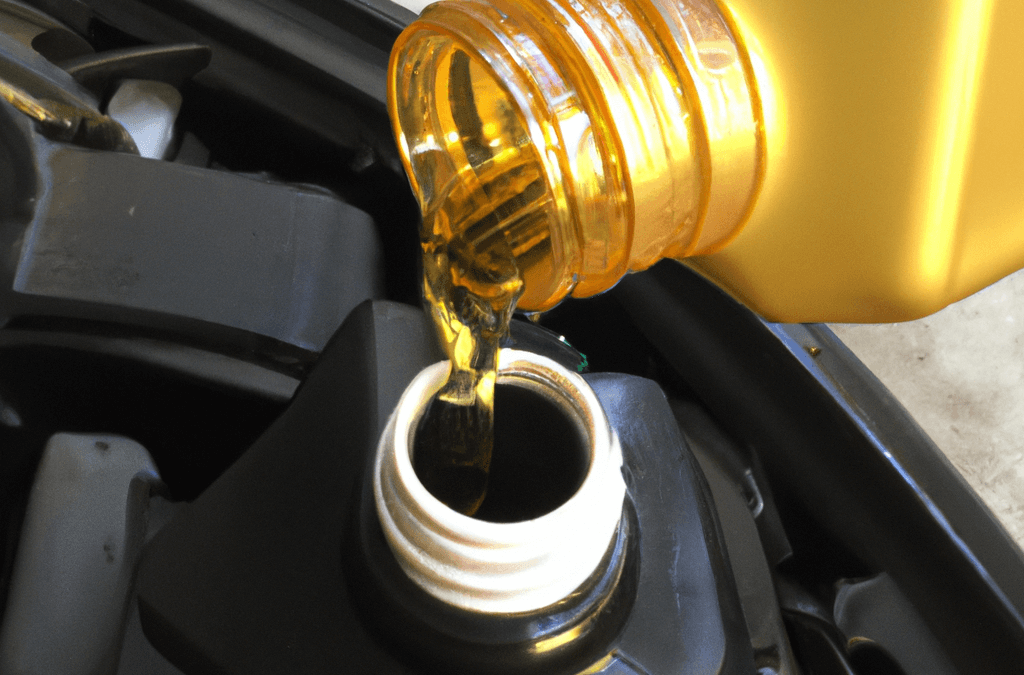Last Updated on May 17, 2023 by Mark S. Taylor
When it comes to taking care of your vehicle, choosing the right engine oil is crucial. In hot weather conditions, the importance of selecting the best engine oil for hot weather becomes even more critical. In these conditions, engine oil can play a major role in keeping your vehicle running smoothly and preventing damage to the engine.

Contents
What is Engine Oil?
Engine oil is a lubricant that helps to keep the moving parts of your engine running smoothly. It helps to reduce friction, prevent wear and tear, and regulate the temperature of the engine. Engine oil also helps to clean and protect the engine from harmful contaminants.
Why is Engine Oil Important in Hot Weather Conditions?
In hot weather conditions, engine oil can have a significant impact on the performance and longevity of your engine. Engine oil can become less effective in hot weather, as it tends to thin out and lose its ability to lubricate the engine components. This can lead to increased friction and wear, resulting in damage to the engine.
Additionally, hot weather can also cause the oil to degrade more quickly, reducing its ability to clean and protect the engine. This can result in the buildup of harmful contaminants in the engine, which can cause even more damage.
Factors to Consider
- Viscosity Grade: The viscosity grade of engine oil determines its flow characteristics at different temperatures. Understanding the appropriate viscosity grade for hot weather conditions is crucial to ensure proper lubrication.
- Synthetic vs. Conventional Oil: Synthetic oils offer superior heat resistance and improved performance in extreme temperatures, making them suitable for hot weather. However, conventional oils can still provide adequate protection with more affordable pricing.
- API Certification: Look for engine oils with API certification, indicating they meet the industry’s standards for performance and protection.
- Additive Package: The additive package in engine oils plays a vital role in enhancing their performance, including reducing friction, preventing deposits, and improving viscosity stability.
- High-Temperature Stability: Engine oils with high-temperature stability maintain their viscosity and protect the engine from excessive heat, reducing the risk of engine breakdown or damage.
- Resistance to Oxidation: Hot weather conditions can accelerate oil oxidation, leading to sludge formation and reduced oil life. Choosing engine oils with excellent oxidation resistance is essential.
- Compatibility with Engine Components: Ensure the selected engine oil is compatible with the materials used in your engine, including seals, gaskets, and other components.
- Fuel Economy: Some engine oils are designed to improve fuel economy by reducing friction and enhancing engine efficiency. Consider oils with fuel-saving properties to maximize your vehicle’s mileage.
- Extended Drain Intervals: Some high-quality engine oils allow for extended drain intervals, reducing maintenance frequency and costs. However, always follow the manufacturer’s recommendations for oil change intervals.
- Brand Reputation: Opt for engine oils from reputable brands with a proven track record of producing high-quality products and providing excellent customer support.
- Customer Reviews: Reading customer reviews and testimonials can provide valuable insights into the performance and suitability of different engine oils in hot weather conditions.
Pros and Cons of Synthetic Oil
Pros:
- Superior heat resistance and stability in hot weather
- Enhanced engine protection and performance
- Improved fuel efficiency
- Extended oil change intervals
- Reduced engine wear and tear
Cons:
- Higher price compared to conventional oils
- Potential incompatibility with certain engine components
- Limited availability in some locations
Pros and Cons of Conventional Oil
Pros:
- More affordable than synthetic oils
- Widely available
- Suitable for most engine types
- Adequate protection in moderate hot weather conditions
Cons:
- Less heat resistance compared to synthetic oils
- Shorter oil change intervals
- Reduced fuel efficiency
- More prone to sludge formation in extreme temperatures
What is the Best Engine Oil for Hot Weather?
Here are some of the factors to consider when choosing:
- Viscosity: Viscosity refers to the thickness of the engine oil. In hot weather conditions, it is important to choose an engine oil with a lower viscosity, as this will allow the oil to flow more easily and provide better lubrication to the engine components.
- API Rating: The API (American Petroleum Institute) rating is a measure of the engine oil’s quality and performance. Look for an engine oil with an API rating of “SN” or higher, as this indicates that it is suitable for use in hot weather conditions.
- Additives: Engine oils can contain a variety of additives, such as detergents, anti-wear agents, and corrosion inhibitors. Look for an engine oil that contains these additives to help protect your engine from damage.

FAQ:
1. Can I use the same engine oil in hot weather as I do in cooler weather?
It is not recommended to use the same engine oil in both hot and cooler weather conditions. Engine oil that is designed for use in cooler weather may not perform as well in hot weather, as it may become too thin and unable to provide adequate lubrication.
How to Change the Oil in Your Car
2. How often should I change my engine oil in hot weather?
It is recommended to change your engine oil every 3,000 to 5,000 miles or every 3 to 6 months, whichever comes first. In hot weather conditions, it is especially important to keep a close eye on the condition of your engine oil and change it as needed.
3. What happens if I use the wrong engine oil in hot weather?
Using the wrong engine oil in hot weather can cause significant damage to your engine. Engine oil that is too thick or does not contain the right additives can cause increased friction and wear, leading to damage to the engine components.
In conclusion, choosing the best engine oil for hot weather is crucial to keep your vehicle running smoothly and prevent damage to the engine. When selecting an engine oil, consider factors such as vis
as viscosity, API rating, and additives. Be sure to choose an engine oil that is specifically designed for use in hot weather conditions. Regularly checking and changing your engine oil can also help to keep your vehicle in good condition and prevent damage to the engine.
It is important to consult with a trusted mechanic or refer to your vehicle’s owner manual to determine the best engine oil for your specific vehicle. Regular maintenance and using the right engine oil can help to ensure that your vehicle performs well and lasts for many years to come, even in hot weather conditions.
In hot weather, it is also important to take care of your vehicle in other ways, such as keeping it cool by parking in the shade and avoiding prolonged idling, and checking the cooling system to make sure it is functioning properly. By taking these steps, you can help to keep your vehicle running smoothly and prevent damage from hot weather.
4. Will using synthetic oil void my vehicle’s warranty?
Using synthetic oil in accordance with the manufacturer’s recommendations typically does not void the vehicle’s warranty. However, it’s always advisable to consult the warranty documentation or contact the manufacturer to ensure compliance.
5. How can I identify if the engine oil meets API certification standards?
API-certified engine oils will have the API logo on the packaging. You can also check the product specifications or consult the manufacturer’s website for confirmation of API certification.
Conclusion
Choosing the best engine oil for hot weather is crucial to maintain your vehicle’s engine performance and longevity. Consider factors such as viscosity grade, synthetic vs. conventional oil, API certification, additive package, high-temperature stability, resistance to oxidation, compatibility with engine components, fuel economy, extended drain intervals, brand reputation, and customer reviews. By selecting the right engine oil, you can ensure optimal lubrication, temperature regulation, and protection for your engine, even in scorching hot weather.

